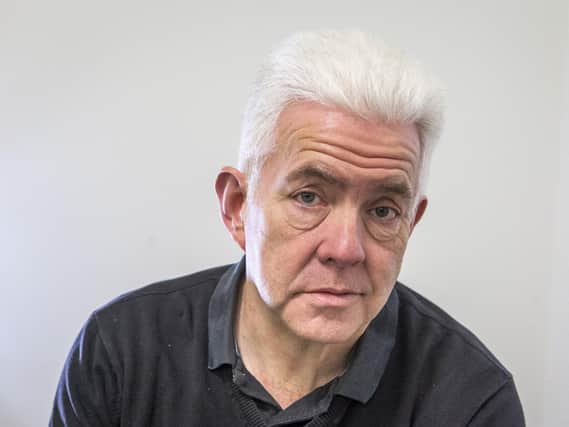There is an art to a good short story - Ian McMillan


I read to such an extent that I often wish I had two pairs of eyes so that I could read two books at once, but I reckon that in a perfect world (like Yorkshire) I would settle down for the first part of the evening with a collection of poems and then for the second part with a collection of short stories.
Another night I might wrestle with a novel but then I’d finish off with a short story.
Advertisement
Hide AdAdvertisement
Hide AdThere’s something very satisfying and stimulating about the way a short story can create a world and the people who live in it in just a few pages; in some stories hardly anything happens but by the end of the final sentence I feel that I’ve learned something about the world.
Imagine my excitement then when I bought a brilliant book called The Golden Age of British Short Stories 1890-1914 edited by the novelist Philip Hensher.
Now, I must admit that I’m usually more of a fan of what you might call the modern short story written from the second half of the 20th century by people like John Cheever or Alice Munro or our very own Stan Barstow, but the tales in the Golden Age book show us just how those stories developed.
As Hensher writes in his perceptive introduction: “This anthology attempts to capture the sometimes bewildering variety in the short story in this period. Literary genres quickly took shape, were polished to perfection, turned upside down and reinvented: the detective story, the ghost story, the tale of fantasy… in short, this is one of the richest and most accomplished moments in literary history.”
Advertisement
Hide AdAdvertisement
Hide AdThere are familiar writers here, like Rudyard Kipling, Oscar Wilde and HG Wells, but there are also those who have slipped through time’s leaky net like George Egerton (actually the pen name of one Mary Chavelita Dunne), Arthur Morrison and JE Malloch.
What unites all these famous and forgotten writers, however, is the sheer energy of their prose. Characters are introduced in the first sentences and then extraordinary things happen to them; these aren’t like the gentle modernist stories of master of the genre like VS Pritchett, where there isn’t a huge amount of action and what action there is seems to take place behind gauze.
Stories in this anthology start as they mean to go on: “It was in the train that I learnt of his death”, for instance, or “It was a disease with a long name; at times the man could totter into his garden and sit there for an hour…” Openings like that make you want to go on until the end.
And maybe that’s why I like short stories so much: once you start them you have to finish...Just like this column.
Advertisement
Hide AdAdvertisement
Hide AdSupport The Yorkshire Post and become a subscriber today. Your subscription will help us to continue to bring quality news to the people of Yorkshire. In return, you'll see fewer ads on site, get free access to our app and receive exclusive members-only offers. Click here to subscribe
Comment Guidelines
National World encourages reader discussion on our stories. User feedback, insights and back-and-forth exchanges add a rich layer of context to reporting. Please review our Community Guidelines before commenting.